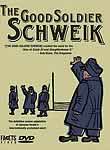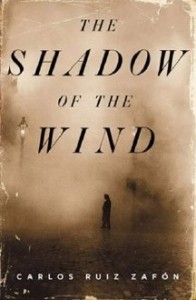Archive for the ‘books’ Category
The Good Soldier Švejk by Jaroslav Hašek
 The story begins in Prague with news of the assassination in Sarajevo that precipitates World War I.
The story begins in Prague with news of the assassination in Sarajevo that precipitates World War I.
Švejk displays such enthusiasm about faithfully serving the Austrian Emperor in battle that no one can decide whether he is merely an imbecile or is craftily undermining the war effort. However, he is arrested by a member of the secret police, Bretschneider, after making some politically sensitive remarks, and is sent to prison. After being certified insane he is finally transferred to a madhouse, before being ejected.
Švejk gets his charwoman to wheel him (he claims to be suffering from rheumatism) to the recruitment offices in Prague, where his apparent zeal causes a minor sensation. Unfortunately, he is transferred to a hospital for malingerers because of his rheumatism. He finally joins the army as batman to army chaplain Otto Katz; Katz loses him at cards to Lieutenant Lukáš, whose batman he then becomes. Lukáš is then posted with his march battalion to barracks in České Budějovice, in Southern Bohemia, preparatory to being sent to the front. After missing the train to Budějovice, Švejk embarks on a long anabasis on foot around Southern Bohemia in a vain attempt to find Budějovice, before being arrested as a possible spy and deserter (a charge he strenuously denies) and escorted to his regiment. He is then promoted to company orderly.
The unit embarks on a long train journey towards Galicia and the Eastern Front. Stopping in a town on the border between Austria and Hungary, Švejk is again arrested, this time for causing an affray involving a respectable Hungarian citizen and engaging in a street fight. Before reaching the front line, Švejk is taken prisoner by his own side as a suspected Russian deserter, after arriving at a lake and trying on an abandoned Russian uniform. Narrowly avoiding execution, he manages to rejoin his unit. The unfinished novel breaks off abruptly before Švejk has a chance to be involved in any combat or enter the trenches, though it appears Hašek may have conceived that the characters would have continued the war in a POW camp, much as he had done.
The book also includes a very large number of anecdotes told by Švejk (usually either to deflect the attentions of an authority figure, or to insult them in a concealed manner) which are not directly related to the plot.
The Shadow of the Wind by Spanish writer Carlos Ruiz Zafón

The Shadow of the Wind – US
La Sombra del Viento – US
The Shadow of the Wind – UK
The Shadow of the Wind – Canada
L’Ombre du vent – France
Der Schatten des Windes – Deutschland
The novel, set in post–Spanish Civil War Barcelona, concerns a young boy, Daniel. Just after the war, Daniel’s father takes him to the secret Cemetery of Forgotten Books, a huge library of old, forgotten titles lovingly preserved by a select few initiates. According to tradition, everyone initiated to this secret place is allowed to take one book from it, and must protect it for life. Daniel selects a book called The Shadow of the Wind by Julián Carax. That night he takes the book home and reads it, completely engrossed. Daniel then attempts to look for other books by this unknown author, but can find none. All he comes across are stories of a strange man – calling himself Laín Coubert, after a character in the book who happens to be the Devil – who has been seeking out Carax’s books for decades, buying them all and burning them.